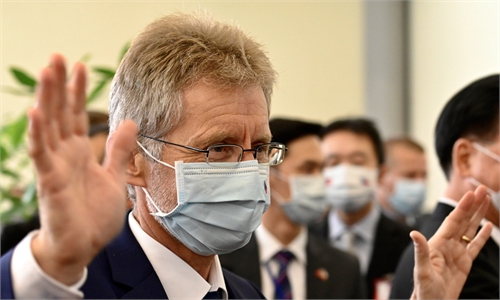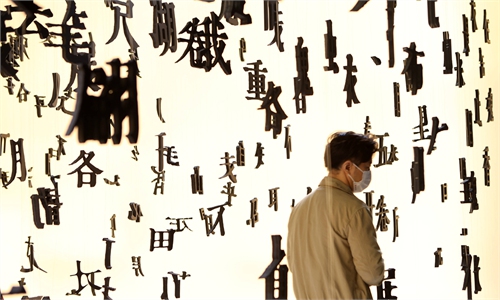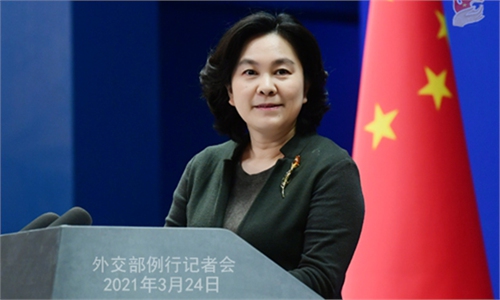
Microphone Photo: VCG
In the new global context, we need to focus on making great efforts to strengthen our capability of international communication - and gain an international discourse power that matches our comprehensive national strength and international status. In recent years, some Western countries led by the US have been manipulating international public opinion by using various issues to smear China, from the so-called China virus to Xinjiang cotton. Thus, many Chinese people feel the need to make China's voice heard and present objective facts more promptly and powerfully.But the discourse we are striving to enhance is very different from the one in the West. The West uses its discourse power in the sense of absolute power. It reflects the subordinate relationship between countries, as the process of influencing goes only one way. For instance, the current smear against China by some Western governments and media is a manifestation of their control and use of Western-style rights of speech.
Because of the nature of the brutality of Western-styles of discourse power, Western governments and media exercise their power in a way that is intentionally (and sometimes unintentionally) obscure. On the one hand, this is because they actually hold such power through their control of international public opinion. On the other hand, it is also because the discourse they exercise does not emphasize equality or dialogue. Therefore, they try to use their own voice to drown out (or even eliminate) the other ones.
Such being the case, China needs to avoid falling into a trap set by the West when the country is striving to assure its right to speak. China's efforts are not meant to gain discourse power, but to have its own voices heard.
However, this move can possibly be twisted as an attempt to establish discourse dominance as the West has done. Therefore, China must emphasize that its efforts are about defending its rights rather than seeking power or dominance. In other words, what China seeks is a fairer and more reasonable world order in which every country enjoys the rights to voice their standpoint and tell the true stories about them - and such voice shouldn't be suppressed by the West at will.
Against this backdrop, when China strives for the right to speak, it should also promote the establishment of a "Discourse Community" that can break the binary opposition mind-set. Such a community has the following characteristics.
First, it upholds equality and coexistence. The West emphasizes its greater legitimacy to speak over disadvantaged rhetoric. It is a sort of antagonism between the dominating values of the West and the values that Western countries view as backward. This runs in the opposite direction to the emphasized principle of equality between nations, whether big or small. In the "Discourse Community," there is no country, discourse or value that is superior or inferior to any other. For China, the goal is never to suppress the discourse of others, as the West has done. China advocates paying more attention to the voices of those on the margins of the international community. Therefore, a "Discourse Community" without exclusivity is most in line with China's values and diplomatic orientation.
Second, it advocates dialogue and communication between different discourses and pursues the coexistence of different discourses. The Western discourse rights are based on power that emphasizes the relationship between suppression and being suppressed - and even between ruling and being ruled. This is difficult to make compatible with China's position of exchange and dialogue among civilizations, inclusiveness and mutual learning. In the face of the new era, China has put forward the concept of "a community with a shared future for mankind." Naturally, it should also include the ultimate discourse of connectivity, as well as the underlying ideas and values to achieve the goal of common improvements through exchanges.
Compared with the discourse power in the sense of national strength, the discourse power based on rights and the construction of a common "Discourse Community" is a higher level of pursuit - and it will undoubtedly help us to show our open-minded and inclusive image to the world. At present, in the face of the Western discourse hegemony, China must pursue and enhance its power and ability of speech. But we will never fall into the trap of the Western discourse power.
The author is a research fellow and deputy director at the Institute of International Relations of the Shanghai Academy of Social Sciences. opinion@globaltimes.com.cn



